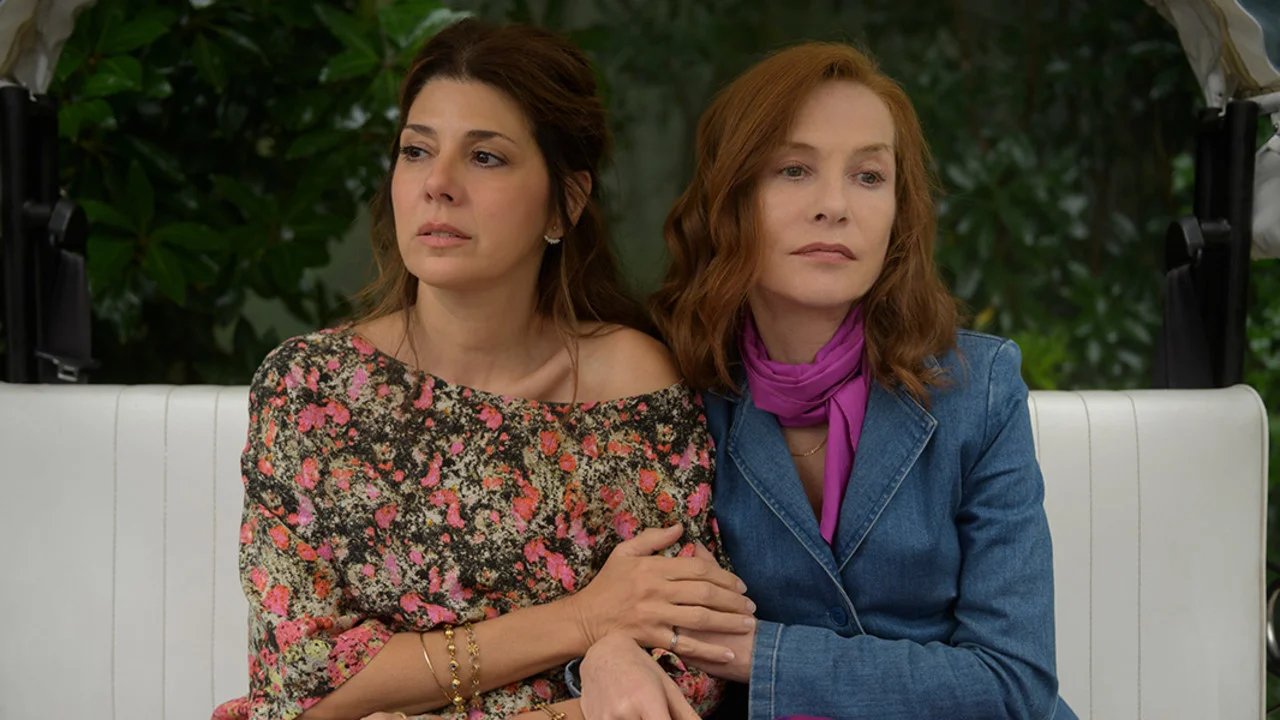Review by Zach Dennis
Ira Sachs is a very unassuming director. While this is a hyperbolic comparison, he deals with his New York family dramas much in the same way that Yasujiro Ozu did – focusing on the small minuta of family life and how it all affects the people within that bubble.
Sachs expands that a bit her, including expanding his location from New York City to the lovely coastal town of Sintra, Portugal. This narrative continues his interrogation of the modern, metropolitan family but goes about it in a way similar to more contemporary directors such as Richard Linklater, Hirokazu Kore-eda (a director I’ll get to in a minute) and, to an extent, Hong Sang-soo.
Frankie is about an aging actress played by Isabelle Huppert in the title role. As we slowly learn, Frankie has a fatal illness and has used this as an excuse to bring together her family to Sintra for a vacation together. Along for the trip are her first (Pascal Greggory) and current husband (Brendan Gleeson), her son (Jérémie Renier) and her step-daughter (Vinette Robinson), who in turn brings her husband (Ariyon Bakare) and daughter (Sennia Nanua).
Also, joining the family is Ilene (Marisa Tomei), a friend of Frankie’s who works as a hair stylist for movies and, in Frankie’s mind, a potential partner for her son who is moving to Ilene’s town of New York City after the trip. But to throw a wrench in the plan, Ilene ends up bringing along her boyfriend, Gary (Greg Kinnear).
For the entirety of the film, Sachs places these various characters in conversations about Frankie, about their lives at the time, and about what Frankie’s passing will mean to them. Structured like the long walks of Linklater’s Before trilogy, the segments feel more reminiscent of Hong Sang-soo and the way he pulls people away from each other and into disparate conversations (see The Day He Arrives, or, more recently, Hotel by the River).
At Frankie’s core, Sachs is still investigating the question he has been interested in as of late – what creates the infrastructure of family, and how steady is that ground? Frankie has gone through two marriages, but it seems like both men (and she) are at peace, but that isn’t the same for her step-daughter Sylvia, who is on the rocks with her husband and seeking a side apartment.
Her son, Paul, is unhappy with his love life – believing his last girlfriend (who he split up with many months before) was actually “the one” for him. At the same time, Ilene is being proposed to by Gary and is unsure of whether or not a future at his lake house outside of the city is what will bring calm to her life. While not as directly as Frankie would like to have it, the two are brought together by the end, but engage in a strange plot beat that includes Paul explaining the insanity of his family to Ilene by re-telling a story about how he had sex with Sylvia prior to her officially becoming his step-sister, leading Frankie to leave him to be with Sylvia and her father, Jimmy (Gleeson).
The beat comes out of nowhere and seems a little too French for the Portuguese setting, and it doesn’t necessarily add to the complexity of the familial tapestry. The film is much more interesting when we are spending intimate time between characters such as Ilene and Frankie, or Frankie and Jimmy or even just Frankie alone wandering the countryside and happening upon a small birthday party for a local family. At the same time, Sylvia’s daughter Maya (Nanua) falls into a small fling with a Portuguese boy visiting Sintra with friends – illustrating that Maya will follow the same path as both her mother and grandmother. For Sachs, life is constantly presenting new complications, but that is just the nature of living.
This comes to a head as the entire family meets on the peak of a cliff to watch as the sun goes down. Sachs moves from a medium shot of the family moving towards the edge to a long shot behind them. As we watch the sun go down and each vine of the family withers away, walking from the scene, we are offered a small glimmer of solace knowing that despite these complications over the past 90 minutes, the sun will set and a new dawn will rise.
While being relatively unassuming most of the time, the sequence has to be one of Sachs’s most beautiful and flourishing yet.

